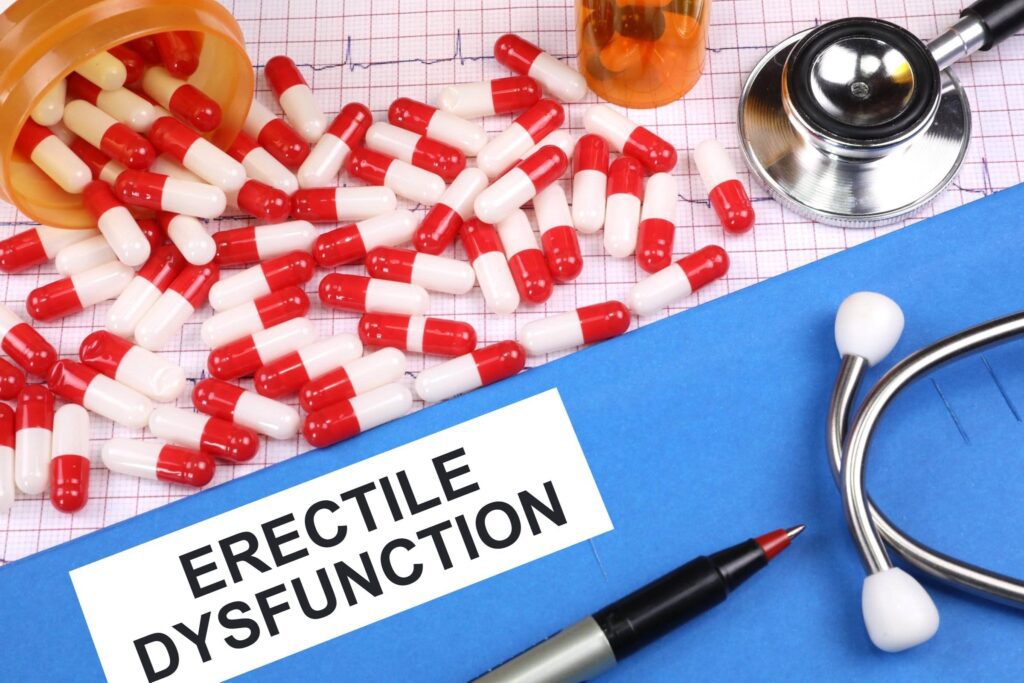
Erectile dysfunction (ED) is a common condition affecting men of all ages, and it can be a cause of concern for many. While most cases of ED are due to underlying medical or psychological issues, there are instances where it occurs temporarily. Temporary erectile dysfunction can arise from various factors, such as stress, fatigue, medication side effects, or lifestyle changes. In this article, we will explore the causes and duration of temporary erectile dysfunction.
Causes of Temporary Erectile Dysfunction:
1. Stress and Anxiety:
One of the leading causes of temporary erectile dysfunction is stress and anxiety. High levels of stress can lead to increased cortisol levels, which can affect the body’s ability to maintain an erection. Similarly, anxiety and performance pressure can interfere with the mind-body connection required for a satisfactory sexual experience.
2. Fatigue and Sleep Deprivation:
Lack of proper rest and sleep can take a toll on overall health, including sexual health. Fatigue can reduce energy levels and inhibit proper blood flow to the penile region, making it difficult to achieve or maintain an erection.
3. Medication Side Effects:
Certain medications, such as antidepressants, antihistamines, and blood pressure drugs, can have adverse effects on sexual function. Temporary erectile dysfunction may occur while using these medications, but it often resolves once the medication is discontinued or adjusted.
4. Alcohol and Substance Abuse:
Excessive alcohol consumption and substance abuse can interfere with the nervous system and cause temporary erectile dysfunction. These substances can disrupt the delicate balance of hormones and neurotransmitters involved in the sexual response.
5. Relationship Issues:
Problems within a relationship, such as unresolved conflicts or lack of intimacy, can lead to temporary erectile dysfunction. Emotional disconnection and strained communication can impact sexual desire and performance.
Duration of Temporary Erectile Dysfunction:
The duration of temporary erectile dysfunction varies depending on the underlying cause and individual factors. In many cases, it resolves on its own once the triggering factor is addressed. Let’s explore the expected duration based on the causes:
1. Stress and Anxiety-Induced ED:
If temporary erectile dysfunction is caused by stress or anxiety, it usually lasts for a short period. As stress levels decrease and emotional well-being improves, sexual function tends to return to normal within a few days or weeks.
2. Fatigue and Sleep-Related ED:
When ED results from fatigue or sleep deprivation, it typically resolves once the individual gets sufficient rest. Ensuring an adequate amount of sleep and managing fatigue can lead to improvements in sexual function over a few days.
3. Medication-Induced ED:
If temporary erectile dysfunction is due to medication side effects, it may persist as long as the individual continues to take the specific medication. Consultation with a healthcare professional can help find alternative medications or adjust dosages to alleviate this issue.
4. Alcohol and Substance-Related ED:
The duration of temporary erectile dysfunction resulting from alcohol or substance use can vary based on the individual’s metabolism and frequency of consumption. Reducing or eliminating alcohol and substance intake can lead to improvements in sexual function over time.
5. Relationship-Related ED:
Addressing relationship issues may take more time and effort. Couples counseling or open communication can help resolve underlying problems, leading to an improvement in sexual function over weeks to months.
Temporary erectile dysfunction is a common concern faced by many men, but the good news is that it is often reversible. Understanding the causes, such as stress, fatigue, medication side effects, substance abuse, or relationship issues, can help identify the appropriate solutions. If you experience persistent or recurrent erectile dysfunction, it is essential to consult a healthcare professional to rule out any underlying medical conditions. Remember that open communication, a healthy lifestyle, and stress management are essential for maintaining good sexual health.